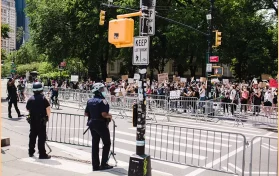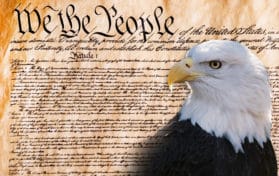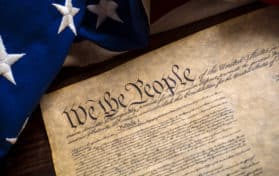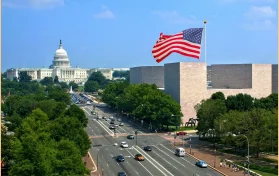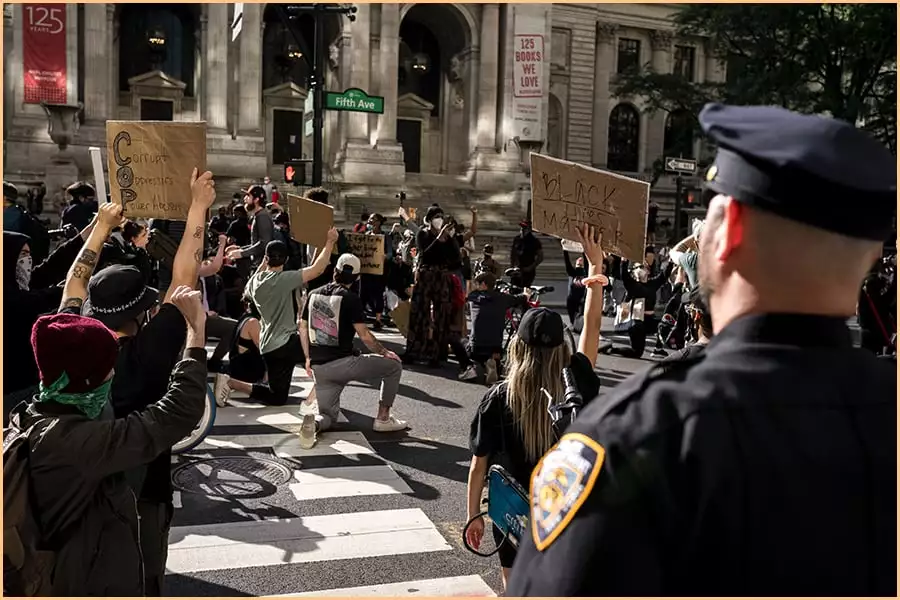
Senators are members of the legislative branch of the government. They are part of the bicameral system of government. Together with the members of the House of Representatives, they form the legislative body.
Members of their home state elect senators. Each state has two members in the Senate, bringing their total number to 100.
Senators enjoy a term limit of six years. There is no limit to the number of times you can run for the seat.
The Secret Service is a branch of Homeland Security that protects leaders and conducts criminal investigations.
Senators are important high-ranking government officials who may be a target for deviants. They require some level of protection. Many high-ranking government officials are protected by specialized security units but,
Do senators get Secret Service protection?
Senators do not get Secret Service protection. Secret Service is reserved only for the president of the United States and the vice president. Secret Service protection is also extended to the incoming president, vice president, and former presidents of the United States.
Roles Of The Secret Service
The Secret Service was initially formed as a special unit intended to investigate and arrest currency counterfeiters. It was formed in 1865 and fell under the then Department of the Treasury.
The Secret Service has an entirely different set of missions and objectives. It has evolved into a complex tactical security unit reserved for the president of the United States and the Vice President.
You can summarize the roles of the Secret Service into three distinct categories. They are:
1. The protective mission
The Secret Service is sworn to protect the following individuals:
- POTUS and the family of the POTUS.
- Vice POTUS and the family of the vice POTUS.
- The president-elect and their family.
- The vice president-elect and their family.
- All former presidents, their families, including children who haven’t attained the age of majority.
- All former vice presidents have their families, including children who haven’t attained the age of majority.
- Visiting heads of state.
- The Secretary of homeland security.
The president and vice president are under no obligation to decline the security detail offered by the Secret Service.
2. The investigative mission
The investigative mission of the Secret Service is an extension of its original core mandate. Initially, the federal government created the body to investigate and end the counterfeiting of currency in 1865. Today, the Secret Service has diversified its operations.
Some of the investigations they carry out include mail-related fraud, wire fraud, banking fraud, and cybercrime investigation.
3. Dual objective
The dual objective is a unique amalgamation of the two sets of missions: protective and investigative.
It offers an unmatched set of skills to the Secret Service agents who complete the training and evaluation program.
These are the major classifications of FBI objectives.
Agents Operating Under The Secret Service
There are different classes of agents operating under the Secret Service. Some of the Agents are:
1. Special Agents
Special agents of the Secret Service come from a diverse range of backgrounds. They are specialized military personnel and include accountants, engineers, IT specialists, data scientists, etc.
Special agents undergo rigorous training and are incredibly experienced in field and professional operations.
There are age restrictions for special agents. To qualify, you must be between 21 and 37 years old. A special exemption for age has been made for veterans.
Other qualifications are: You must be a citizen of the United States with a valid driver’s license. You should also have a near-perfect vision.
2. IPO
They are the Investigative Protection Officers of the Secret Service. They are in charge of supporting investigations under the investigative mission role.
3. United States Secret Service Uniformed Division
The Uniformed Division is in charge of protecting the premises of the president of the United States.
They also protect the premises of other foreign diplomatic officials visiting the United States. They are also stationed outside the residence of the vice president.
Their responsibilities include:
- They travel and offer protection to the president and vice president.
- They perform preliminary sweeps to places before the president travels.
- A counter-sniping team secures the environment by identifying potential long-range shooters.
- They investigate crime scenes and other criminal activities.
- They provide emergency response services.
4. Special officers
These are fully trained special agents who offer a wide range of services that support the objectives of the Secret Service.
Some of the services they offer include:
- Driving the president or vice president of the United States.
- Maintaining equipment and servicing machines and equipment used by the Secret Service and the president.
- Operating the Secret Service communication equipment.
Homeland Security
The Secret Service is a branch of Homeland Security. Homeland security is a unified body created solely for public security.
Homeland Security traces its origins to the gruesome attack on September 9, 2001. The department works to develop a unified policy on combating attacks on American soil.
Aside from the Secret Service, the following agencies all fall under Homeland Security:
The United States Coast Guard is the body in charge of maritime security.
- Federal Emergency Management Authority: The body exercises oversite on managing natural disasters.
- Customs and border protection: They are in charge of securing the United States border. They enforce customs and immigration laws. They ensure that illegal substances aren’t coming into the country.
- Transportation and Security Authority: The body is in charge of the security of all transport services on land, water, and air.
- The United States Citizenship and Immigration Services: It is the body providing residency and issuing asylum and citizenship to non-Americans.
- The United States Immigration and Customs Enforcement: The body investigates international crimes in the United States and takes requisite action to apprehend the perpetrators.
The body also arrests, deports, and extradites international criminals in the United States who are fleeing trial in their home countries.
Homeland Security receives advice from the following organs:
- The Homeland Security Advisory Council: Advice from state governments
- Task Force on New Americans: Agency geared at helping new Americans integrate into the culture.
- Homeland Security Science and Technology Advisory Committee: Advice regarding security issued by the department’s Secretary.
Protection For Senators And Members Of The House Of Representatives.
The Secret Service does not protect senators and Members of the House of Representatives. The designated body that offers protection to members of Congress is known as the United States Capitol Police.
It is a specialized body operating independently from the Washington D.C. police. The federal government formed the body in 1828 after John Adams II was attacked outside Congress.
Duties And Responsibilities Of The United States Capitol Police
1. Detecting criminal activities within Congress
The Capitol Police is responsible for identifying potential criminal activities within the Capitol. They also work with major national security organs like Homeland Security to identify risks to members of Congress.
They rely on meticulously collected intelligence to identify security loopholes within the Capitol premises.
2. Preventing potential criminal activities in Congress
After identifying potential criminal activities within Congress, the United States Capitol Police will prevent their occurrence.
The police force works with other specialized units to counter criminal activities and bring perpetrators to custody.
3. Investigating criminal activities within the Capitol
It is the duty of the United States Capitol Police to investigate criminal activity within the Capitol.
They investigate theft, burglaries, insurrections, among others. Criminal activities outside the Capitol fall under the jurisdiction of the Washington D.C. police force.
4. Protecting members of Congress’s lives
Within the premises of Congress, the United States Capitol Police are entrusted with the lives of congress members.
Anything that poses a mortal danger to senators and members of the house of representatives is dealt with swiftly.
5. Protecting members of Congress’s property
The United States Capitol Police protect the property of congress members within the premises of the Capitol. They ensure that no property is stolen or damaged.
Note that property protection is only afforded to property found within the premises of the Capitol. Congress members would need to provide security for their property outside Congress.
6. Regulating traffic within the Capitol
The Capitol Police is responsible for ensuring that only authorized vehicles enter the premises of the Capitol.
They also direct traffic and ensure that it flows correctly within the premise. The police will check for any suspicious packages like explosive devices.
Conclusion
The Secret Service does not provide security to senators is reserved only for the president of the United States and the vice president.
Secret Service protection is also extended to the incoming president, vice president, and former presidents of the United States.
As for senators and members of the house of representatives, their protection is limited only to the United States Capitol Police. It is the security detail that members of Congress receive when they are within the premises of the Capitol.
Outside the Capitol, congress members are expected to provide their security detail.


